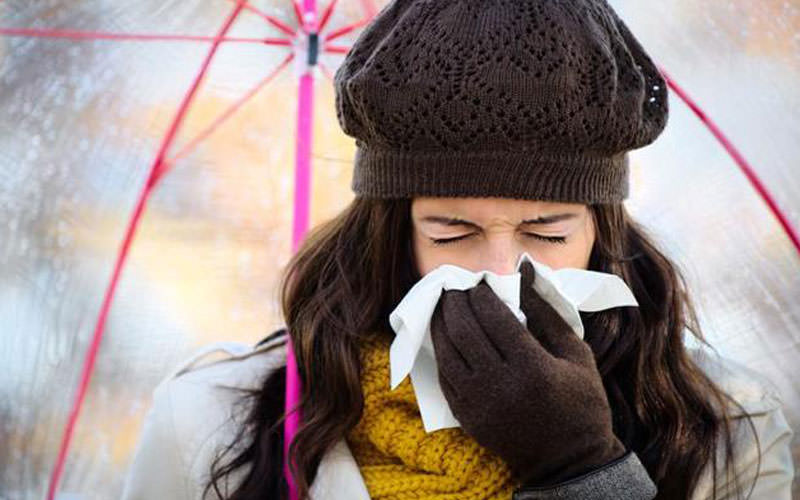Lifestyle
5 Monsoon Diseases You Need To Prevent
2035 Views
0

Almost, everybody likes the rainy season after the scorching summers have taken a toll on them. But, we need to take into consideration that monsoons are additionally the time when infectious diseases are on the ascent. Because of the warm, wet and muggy atmosphere, diseases get to be regular amid the monsoons.
There are some regular monsoon infections that you should know of and that’s why we at Metropolis have decided to do this post, to help you survive the monsoon infections like a boss.
So, Here is a list some prevailing monsoon diseases and ways to prevent them:
Typhoid:
This nasty water-borne infection is brought about by the consumption of contaminated water and dirty sanitation. The regular effect of typhoid is high fever, tormenting pain in the abdomen area and cerebral pain. Additionally, a sore throat can likewise indicate that you might be suffering from typhoid.
How to Prevent This Disease?
- Drink boiled water
- Avoid Street Food
- Wash Your Hands often
- Avoid cold food
Jaundice:
Jaundice can be a really painful experience. It is a kind of sickness that is caused by excessive bilirubin in the blood and causes your skin to become yellow. The worst part of it is that, the sickness harms your liver beyond imagination.
How to Prevent Jaundice?
- Keep a check on your lifestyle
- Drink clean water
- Get hepatitis vaccinations
- Avoid excessive alcohol
- Eat healthy food
Malaria:
Malaria is a disease that is caused by the reproduction of female anopheles mosquito in spots containing stagnant water. This is the most common disease during the monsoons. The normal manifestations of this disease incorporate high fever, tormenting pains in the body, body chills, sweating and vomiting.
How to Prevent Malaria?
- Use mosquito repellent
- Wear long sleeves
- Use a mosquito net during the night
Dengue:
This disease is normally caused by Aedes mosquitos and they have a track record of frequently wreaking havoc upon your well-being. They usually attack during the early mornings and bring destruction upon your life. The most common symptoms of Dengue are extremely high fevers, rashes and severe pain throughout the body.
How to prevent Dengue?
- Wear protective clothing
- Make sure there is no stagnant water near your home or inside your home
- Use as much as mosquito repellents possible
- Screen your windows
Leptospirosis:
Leptospirosis is otherwise called Weil’s disorder. It is brought about by contact with muddy water or garbage. The basic manifestations of leptospirosis are cerebral pain, inflammations, tormenting muscle cramps and high fever.
How to prevent Leptospirosis?
- Cover yourself completely when you step out of your home
- Don’t neglect cuts and bruises
- Cover your feet
To ensure a healthy monsoon, make sure that you visit your doctor frequently and find out what tests are to be done for the season. However, while a large number of today’s medical tests generate exact results, false negative or positives do happen and are a common phenomenon.
A false negative is a test outcome that indicates that a person does not have an ailment or condition when the individual really has it. Correspondingly, a false-positive test result demonstrates that a person has a particular ailment or condition when the individual really does not have it. Hence it is important to choose an accredited laboratory which will give you accurate diagnosis so you don’t lose time in beginning the right course of treatment.
For that purpose get yourself diagnosed by Metropolis as we have state of the art facilities to cater to your needs. Whether it’s Dengue or Malaria we have a track record of providing accurate results.













1701259759.webp)









 WhatsApp
WhatsApp